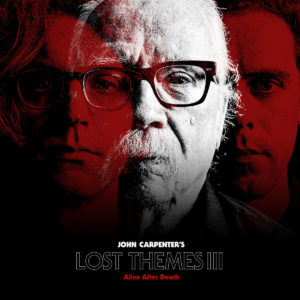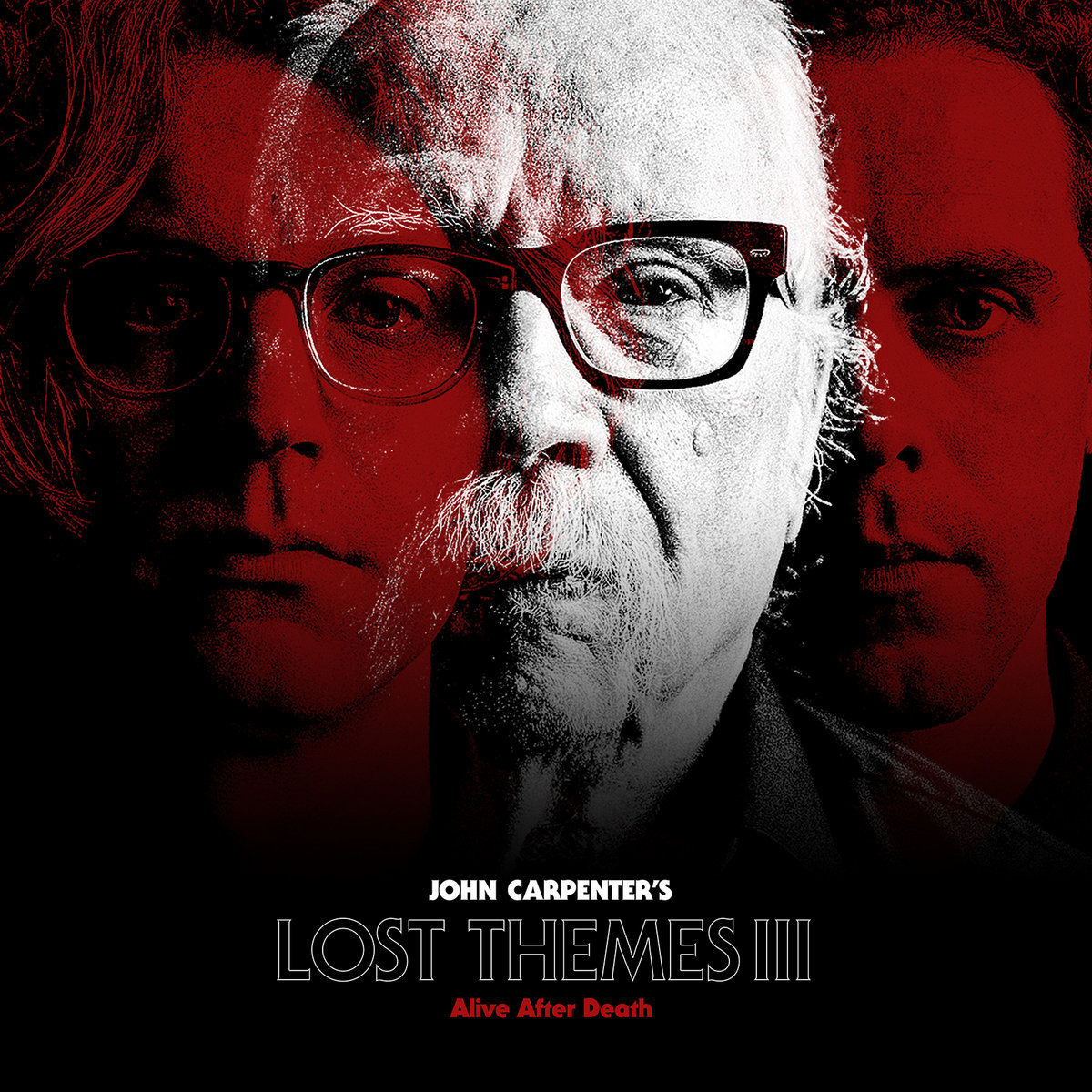 John Carpenter
John Carpenter
Lost Themes III: Alive After Death
SACRED BONES
7/10
What an unexpectedly wholesome late chapter to the career story of the guy who pioneered one of the most gruesome subgenres of horror: having retired from directing films over a decade ago, John Carpenter is instead living out the dream of playing Sega and being a professional rock star, touring massive venues across the world (well, obviously not at the moment) with his son as a member of his band. You’d think he’d be able to do so on the success of his iconic scores to his own movies alone, ranging from the aforementioned slasher film Halloween OST through his more sci-fi-oriented soundtracks to They Live and Escape From New York. Instead he’s been cranking out original compositions—in addition to an anthology of reworked film soundtracks and new original scores—since 2015, which all riff on the sound established in his films over the past half-century.
It’s a shame we’ve lost Carpenter the director, but there’s no doubt that his Lost Themes now-trilogy is an extension of his auteurist vision. Much in the same way his former colleague presented us with what is by far his most Cronenbergian vision since eXistenZ with his 2014 debut novel Consumed, Carpenter’s albums seem to pick up where he arguably left off in the mid-’90s with the last vestiges of his filmmaking brilliance. The third installment opens with a chilling synth repetition which viscerally recalls the iconic Halloween score, swapping the anxious piano for a more modern-horror synth sound. “Alive After Death” even sounds like the subtitle to a film in the Michael Myers canon, preceding nine more song titles that exist firmly in the horror universe.
As with the case of his movies (again, arguably) Carpenter’s music relies less on skin-crawl terror than it does on the cool aesthetics of the horror genre. Even songs with titles like “Dead Eyes” share much more in common with the moody, nighttime-ride sounds of the Drive soundtrack than they do the shrieky strings of Psycho. In fact I can’t even think of a scene in a Carpenter movie where a meditative track like that could work—its horrors feel too ambient to score the series of anxieties that is Halloween.
I read somewhere that Cronenberg wrote Consumed as one of his first screenplays, but opted to turn it into a book after some time when he realized that his ideas were way too graphic to put to film. Similarly, there’s a certain sense of meditative dread in these recordings which Carpenter always seemed to distance himself from in his movies (the kind of dread only an artist like David Lynch could access by spanning his raw ideas into a three-plus hour free-for-all celebration of digital filmmaking). Perhaps more so than on Lost Theme’s earlier installments, Carpenter digs into this troubled mental space to serve up something at times genuinely frightening, all while somehow maintaining the delightful post-filmmaker/retired-dad persona he’s taken on.







